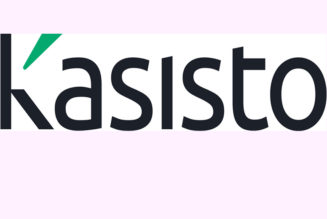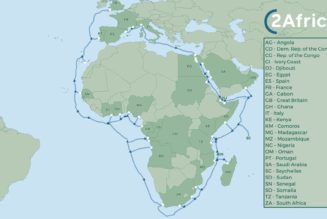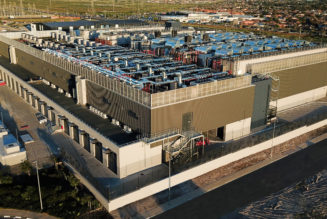SYLVERSYS is a solutions integration company that currently provides its services for African countries, mainly in the West Africa region. With a speciality in providing secure computer and network products/solutions for businesses and organizations in the private and public sector, the UK-based company has moved from strength to strength.
Now, as the pandemic begins to decline in many parts of the world, SYLVERSYS realigns its sights on expanding to more African markets, including those in sub-Saharan Africa.
Recently, SYLVERSYS partnered with Amazon to bring its cloud solutions to Yup, a mobile payment platform based in Senegal.
ITNA’s Luis Monzon had the opportunity to chat with Adama Diouf, VP of SYLVERSYS, and self-styled “Digital Transformation Evangelist” to discuss how the company is using AWS to accelerate transformation in Africa, the challenges many IT companies still face and what the future may look like for SYLVERSYS and IT in the continent.
Here’s what transpired:
- SYLVERSYS recently built a successful cloud solution for one of their clients – can you share some quick insights about that?
Our client wanted a platform on which they could deploy all kinds of services and applications related to their core business, which is mobile money, and electronic money.
The client basically provides a mobile wallet for their customers, from which the customers obviously needed to connect with different payers. Payers such as electricity companies, such as mobile telcos and so on. Customers also need to do certain important functions such as pay invoices and the like. Basically [they needed a solution to] make payments from their core system, which is the mobile wallet platform.
Aside from the mobile wallet platform, everything else the client requested we build on a cloud for them. We started about two years ago and initially, there was nothing aside from their mobile wallet platform. Currently, however, SYLVERSYS managed to deploy solutions that not only allow payments but also for other platforms that the client uses to manage their processes.
Everything was built on AWS (Amazon Web Services), and initially, we had several choices on which platform we would choose to deploy the solutions. For the client, we acted as advisor, implementer, and maintainer.
- For which financial institution did SYLVERSYS provide the cloud solution?
Société Générale, which is handling the mobile platform – Yup – currently present in eight countries in Africa, and our different services are deployed for those different countries in particular.
- SYLVERSYS looked at different AWS services to use in this particular instance: Which one did you end up using? As far as I know, SYLVERSYS looked at solutions like EC2, RDS, ELB, Elasticsearch and Route 53.
Each of those became the main services that we ended up using. But it’s evolving, and that’s the beauty of AWS. We can start with something and move gradually to other things. So we started with simple services like EC2 and RDS mainly. And as the business was growing, as more services were added, we kept adding new servers. We kept adapting to the evolutions of the AWS services we were using.
As of today, we are using all those that you have listed. EC2 for the microservices, we are using RDS for everything related to the database, we have Elasticsearch for everything related to application logging, and so on. We are currently handling approximately 60 different AWS services connected to different payers.
We are also using the services via business processing apps, for example, We are always logging information (mainly for errors), logging what is happening on the systems – if there are downtimes and similar events. These logs are sent to a central Elasticsearch, which allows us then to add some more automation in dealing with application misbehaviours.
- Right now, the market is saturated with great cloud solutions. Why did SYLVERSYS decide to turn to Amazon to select these new services to be able to build the cloud for the client?
When we did the analysis for the client, we looked at several factors in order to decide on which cloud provider to use. The main ones were Google, competing with AWS.
The main reason we decided to go on AWS was first: the ease of use and, secondly, the maturity of AWS services. And thirdly, the stability we found that AWS offered through our own benchmarks. And another deciding point was the cost.
Cost-wise, based on how we planned deployment and evolution, AWS was decided as better than the other providers. On the technical side, the maturity that AWS offered and the stability, and the number of nodes it provided for data centres was key.
- How did the client find the solution? Where they happy with it?
We are glad to report that the client is very happy, because we are still adding more and more to the solution as of today, as well as more and more services therein.
We are migrating again, using that agility that AWS provides to find even more ways of deployment and to continue having a more industrialised deployment. When this project started, it was more like a POC (proof of concept) for the client than something that was going to last but as they were happy and they were able to provide services that more of their customers are enjoying, they just decided to keep it.
I think from the customer side, they are really happy about the services, not only on AWS but also those that SYLVERSYS provides.
At SYLVERSYS, we’ve also been pushed against the wall to find the best solutions. Taking into account several factors like uptime, security, costs, etc., and that is what has really pushed us to ensure that the client’s platform and data centre are highly secured and highly stable.
- With infrastructure in African countries, you find that services like AWS or other cloud computing solutions may struggle due to bandwidth issues, or similar challenges. How has SYLVERSYS dealt with these challenges?
Bandwidth is one of the main issues we have in our region. But with the right settings, with the right sizing, with the right setup for the data centre, and for the servers that are deployed, the environments that are deployed – this can be mitigated. I believe SYLVERSYS can really move to the next level, and not only in terms of our customers.
You will find that in every country in our region, bandwidth is becoming less and less a problem, even though it still is. But with the right toolset, and with the right skills, there are ways to allow people to use cloud services in our region.
We have other clients who are moving into e-commerce and wanting to move their data centres onto the cloud to be able to use different services. The challenges we face aren’t stopping them because with the right toolset and the right skills, these cloud solutions can be set to be to work perfectly in our environments.
- How do you think access to the right skills and the right tools in African countries can be accelerated so that companies like SYLVERSYS can continue to expand and continue to grow?
Well, this is one of the things as SYLVERSYS that we’ve been working on because there is a lack of knowledge on what the cloud really is.
We would like to enlighten our customers, and for them to understand that even when they are in their own country, they have a data centre which is not in the office.
Old-fashioned datacentres nowadays are really old-fashioned. So we need to really teach everyone and educate on these capabilities. That it is possible to make things work using an external cloud.
We have also recently seen with the COVID-19 situation, that when you are not able to be in your office, it’s really difficult if you have a local data centre that you need to work with. So that has been another key element that we started using in spreading the word for Cloud Computing.
In terms of skill sets, I think there is a lot to do. Even in our schools and universities, [these skills and information] are not taught from day one.
But really, I think if those challenges can be overcome, then Cloud Computing should really take off in our region, and that’s what we as SYLVERYS are really pushing on since the very first day of our company.
As you say, legacy infrastructure is a big challenge that needs to be overcome. A second challenge would be education and skills development. You also briefly touched on cybersecurity.
- Cybersecurity is right now facing enormous challenges because of all the individuals that are working from home due to COVID-19. Cybercrime is booming. What is SYLVERSYS doing to ensure that their cloud solutions are protected?
Well, for us, we take security as part of everything we do.
In SYLVERSYS’ side of handling and maintaining data centres – in development, and consulting, security is really a core component. We don’t take security as a secondary thing we add after we have built infrastructure. So it is really when we are in the process of building that we take into account all security-related issues.
When we talk about access, you just mentioned remote working – remote working has been a big challenge to us. As an example, for our client, we had built a security configuration at the time when COVID-19 was just becoming a challenge. We had to rethink these configurations very quickly to allow people to work from anywhere, including at home.
When we talk about security access levels, they should be authenticated, not on the application side but on the network side. Since everyone was just working from anywhere, these security measures had to be adapted, so that those people who are allowed to access the different platforms can access them, but the “bad guys” shouldn’t get access.
This is a constantly evolving area, however, where you cannot just say what you have done today will work tomorrow in keeping track of exactly what is happening in the system. Looking at what is normal, what is not. Our team is also constantly being pushed to train, learn and adapt.
- What are SYLVERSYS’ plans going forward?
SYLVERSYS started in 2008, and from day one my partner and I had a vision where we saw that all IT would eventually move to the cloud.
Since the beginning, we’ve been working on different solutions, different platforms, some are no longer here, some have been bought by bigger companies. Right now we provide solutions for 4 different countries in Africa – mainly West Africa.
Ghana was the first country in 2008. Now we are in Mali, and Senegal and Burkina Faso. We have rep offices also in other countries. We were planning a strategy in 2020 to expand in other countries using the same model that we have previously applied successfully. But these plans were slowed when COVID-19 came up.
In terms of the future, we have a very clear view of where we are heading: We want to cover the whole of sub-Saharan Africa first in the next five years. We’ll see how we can do that coverage. Right now the plan is to build a physical presence in the different countries to which we are planning to expand to. Currently, the plan that we have is to begin moving into three or four countries per year, or even more, beginning in 2022 since we are now recovering from COVID.
Kenya was part of the plan for 2020. And Nigeria and South Africa were also in the loop. I think we have the capabilities to move into those regions. And I think, even in the way we do things, the competition would have to work very hard to stop us.
- What advice would you give to other tech companies in Africa to push for digital transformation?
I think we just hope that people will really understand the current trends of IT because it would be very, very good game for all the entities or all the companies in our region to not go through the same way, I would say, the “developed countries” have gone through to reach where they are now.
Companies in our region should just have a big leap to move to the current state of IT because it’s easier now with Cloud Computing and everything that is related to that.
By Luis Monzon
Follow Luis Monzon on Twitter
Follow IT News Africa on Twitter










